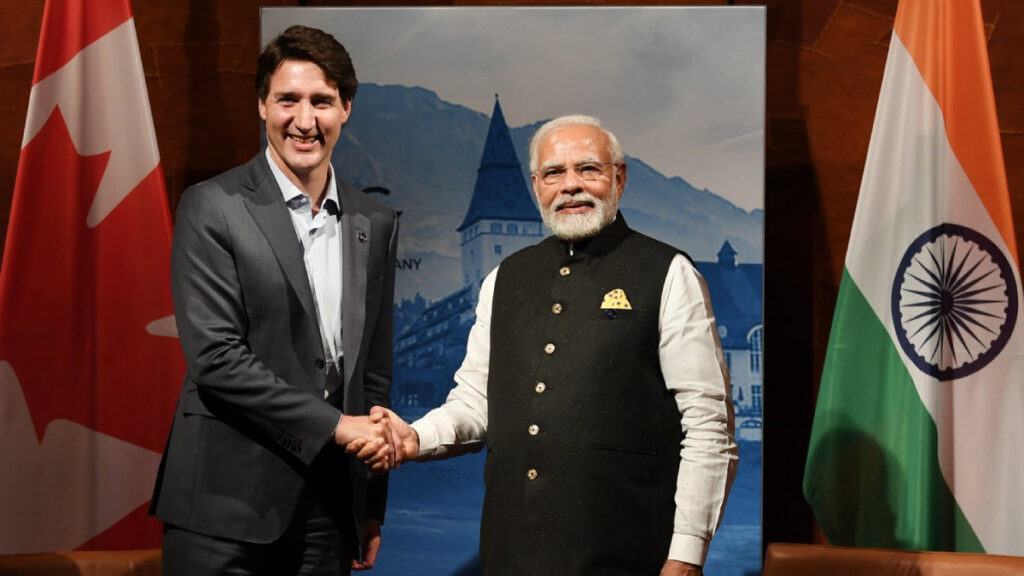A recent diplomatic spat has erupted between India, the United States, and Canada, following allegations that an Indian government official was involved in plots against pro-Khalistan separatist figures based in North America. Both the US and Canada have presented what they term as “credible information” to Indian officials, sparking a strong rebuttal from New Delhi, which has labeled the discussions an “ambush.” This controversy raises essential questions about the implications for India’s relationships with these nations and the broader geopolitical landscape.
Allegations of Extraterritorial Actions
The allegations originated from a series of high-level meetings between officials from the US, Canada, and India, during which American and Canadian representatives reportedly shared intelligence suggesting an Indian government official’s involvement in targeting pro-Khalistan separatists abroad. These discussions have highlighted a growing concern among Western nations regarding alleged Indian government actions against dissidents in their jurisdictions.
In Canada, the presence of a significant Sikh diaspora has historically complicated relations between New Delhi and Ottawa. Pro-Khalistan sentiments have gained traction among certain factions within this community, leading to tensions between the two nations. Indian officials maintain that these allegations stem from a lack of understanding of India’s national security concerns, particularly regarding the Khalistan movement, which seeks to establish a separate Sikh homeland in India’s Punjab region.
India’s Firm Rejection of Claims
In response to the allegations, India has been unequivocal in its stance. Official sources have described the meetings as an ambush, asserting that the information shared lacked credible evidence. India’s Ministry of External Affairs has vehemently denied any wrongdoing, emphasizing that it does not engage in extraterritorial actions against individuals abroad.
A senior Indian official stated, “We have a strong counter-terrorism framework in place, and we adhere to international law. These allegations are baseless and politically motivated.” This strong response reflects India’s commitment to defending its sovereignty and rejecting what it perceives as unwarranted interference in its internal affairs.
The Khalistan Movement: Historical Context
The Khalistan movement has deep roots in the socio-political landscape of India. Emerging in the 1980s amid rising discontent among Sikhs, the movement sought to establish an independent Sikh state. It gained notoriety for its association with violent incidents, including the assassination of Prime Minister Indira Gandhi in 1984. Since then, the movement has splintered into various factions, some advocating for peaceful means while others resort to violence.
In Canada and the US, certain pro-Khalistan groups have garnered support among the Sikh diaspora, who view their cause as a legitimate struggle for rights and recognition. However, the Indian government views these activities as threats to national integrity, often expressing concerns that foreign nations are harboring individuals who promote separatist ideologies.
US and Canada: The Role of Intelligence and Politics
The allegations made by the US and Canada are rooted in intelligence reports that both countries deem credible. The involvement of Canadian officials, including Acting High Commissioner Stewart Ross Wheeler, underscores Ottawa’s commitment to addressing these issues seriously. However, the lack of publicly available evidence has led to skepticism regarding the motivations behind these diplomatic efforts.
The United States, while not as vocally critical of India as Canada, has echoed concerns about the implications of such actions for regional stability. American officials have historically advocated for a collaborative approach to counter-terrorism, emphasizing the importance of respecting human rights while ensuring national security.
Impact on India’s Global Relations
The diplomatic tensions arising from these allegations could have far-reaching consequences for India’s relationships with both the US and Canada. For India, maintaining strong ties with these countries is crucial, especially in light of the growing geopolitical challenges posed by China. India has been increasingly proactive in strengthening partnerships within the Indo-Pacific framework, which includes enhancing defense collaborations with the US and Australia.
However, the current situation poses a challenge to these efforts. Canada, which is home to a substantial Sikh population, plays a vital role in India’s soft power strategy. A continued focus on pro-Khalistan sentiments could strain bilateral ties, affecting trade and cooperation in areas such as education, technology, and climate change.
The Way Forward: Dialogue and Diplomacy
As this diplomatic crisis unfolds, it is imperative for all parties to prioritize dialogue and constructive engagement. For India, the emphasis should remain on defending its national interests while navigating the complexities of international relations. It will need to continue advocating for a balanced approach that acknowledges the rights of individuals while ensuring national security.
For the US and Canada, a measured response that respects India’s sovereignty is crucial. Both countries must consider the broader implications of their actions on their relationships with India, particularly in a world where geopolitical alignments are becoming increasingly intricate.
The ongoing allegations against India concerning the Khalistan movement and the alleged involvement of Indian officials in plots against separatist figures have escalated into a significant diplomatic crisis. As India categorically denies these claims, the situation underscores the complexities of international relations in an interconnected world. Going forward, it is essential for all parties to engage in dialogue, understanding the implications of their actions while working towards maintaining stable and constructive relationships.
